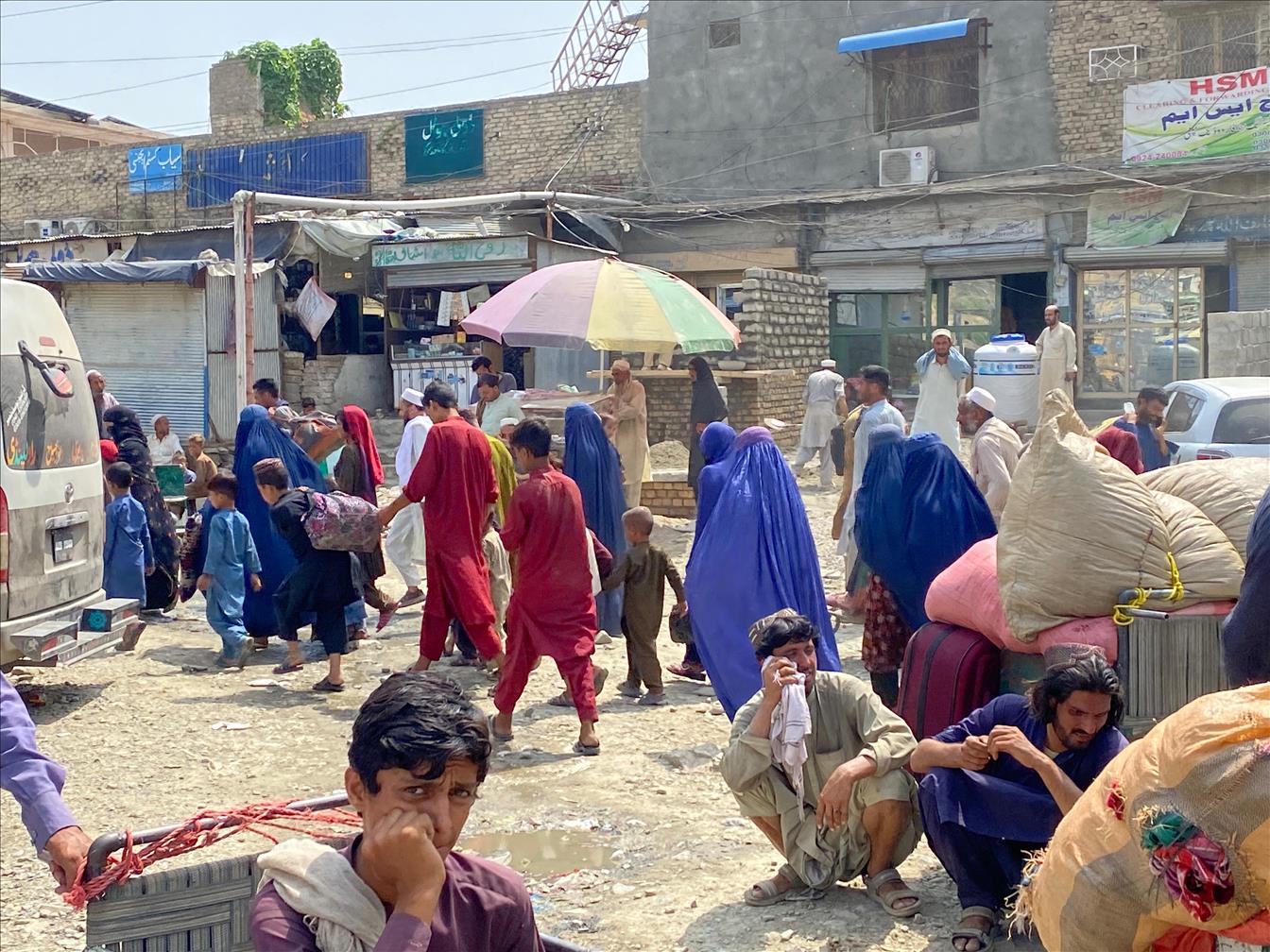Afghan Refugees In Pakistan: Leaving With Tears, Living With Trauma, And Facing An Uncertain Tomorrow
On the dusty outskirts of Peshawar near Khazana village, seven-year-old Khoala clutches her worn-out doll as tears roll down her face. For the past two decades, her family has lived here after fleeing Afghanistan, her father scraping a living by selling potato fries from a cart. But now, after 22 years, they are packing up once again.“When we told Khoala that we are leaving Pakistan, she cried all night and has had a fever for two days,” her father Ahmad Noori told TNN English.“Our dreams and our future are both going dark. Who will give us a roof? We are living with broken hearts and minds.”
This is the reality for thousands of Afghan families being uprooted, not for the first time, but as part of an endless cycle of displacement. Migration, they say, is not just about crossing borders-it is about carrying trauma, anxiety, and the unbearable uncertainty of survival.“Migration is the second name of phobia and multiple challenges,” Noori adds.
According to UNHCR, Pakistan currently hosts 1.36 million registered Afghan refugees, alongside an estimated 600,000 undocumented individuals. Most of them live in Khyber Pakhtunkhwa (52.7%) and Balochistan (24%), often in fragile settlements. But the pressure to return is mounting. In 2023–24 alone, nearly 520,000 Afghans crossed back into Afghanistan some voluntarily, many under duress. Yet, UNHCR warns that over 110,000 refugees in Pakistan fall into high-risk categories, where forced return could expose them to grave threats.
Also Read: Qatar, the Bridge of Hope: Mediating Peace and Supporting Afghans in Crisis
For Asif Khan, who recently moved back to Afghanistan's Kunar province from Swabi through the Torkham border, starting over feels like losing everything at once.“It's been one month, and none of us has slept well. Two things don't leave us-tears and memories of our village,” he says.“Here we start from zero. Afghanistan is not ready to host families like us there are food security issues, no jobs for laborers, and our children are restless and sad.
Psychologists warn that the impact of this forced migration will haunt families long after they cross the border. Clinical psychologist Durre Shahwaar told TNN that migration disrupts not only physical lives but also mental wellbeing.“Birthplace, school friends, and familiar environments matter enormously for children's mental health,” she explained.“If these affected children are not given therapy or psychological support, they are likely to develop depression, anxiety, and stress within six to seven months.” She added that trauma can also manifest in physical weakness, particularly among young children and vulnerable adults.
Women and children bear the heaviest toll. Families recount heightened psychological issue insomnia, depression, and post-traumatic stress. For many, the mere mention of another move triggers anxiety. Community elders call it a“silent epidemic,” invisible yet deeply damaging.
Afghan refugees are often painted as outsiders burdening local economies, yet their labor in construction, agriculture, and small-scale trade has long sustained markets across Pakistan. Despite this, they leave with little recognition, navigating the trauma of losing both shelter and dignity.
For Khoala's family, and countless others, migration means carrying memories like heavy baggage. It means explaining to children why the only home they know is no longer theirs. It means returning to a country still struggling with food insecurity, joblessness, and instability.
Afghan refugees in Pakistan are more than statistics. They are children crying from fevers of fear, fathers questioning their future, and families forced to trade belonging for survival. The world must decide: will their plight remain a forgotten footnote in migration reports, or will global policies finally offer them dignity, protection, and hope for tomorrow?

Legal Disclaimer:
MENAFN provides the
information “as is” without warranty of any kind. We do not accept
any responsibility or liability for the accuracy, content, images,
videos, licenses, completeness, legality, or reliability of the information
contained in this article. If you have any complaints or copyright
issues related to this article, kindly contact the provider above.
Most popular stories
Market Research

- Motif AI Enters Phase Two Of Its Growth Cycle
- 1Inch Unlocks Access To Tokenized Rwas Via Swap API
- Kucoin Presents Kumining: Embodying Simple Mining, Smart Gains For Effortless Crypto Accumulation
- With Seal, Walrus Becomes The First Decentralized Data Platform With Access Controls
- Jpmorgan Product Head Joins GSR Trading MD To Build Institutional Staking Markets
- Innovation-Driven The5ers Selects Ctrader As Premier Platform For Advanced Traders





















Comments
No comment